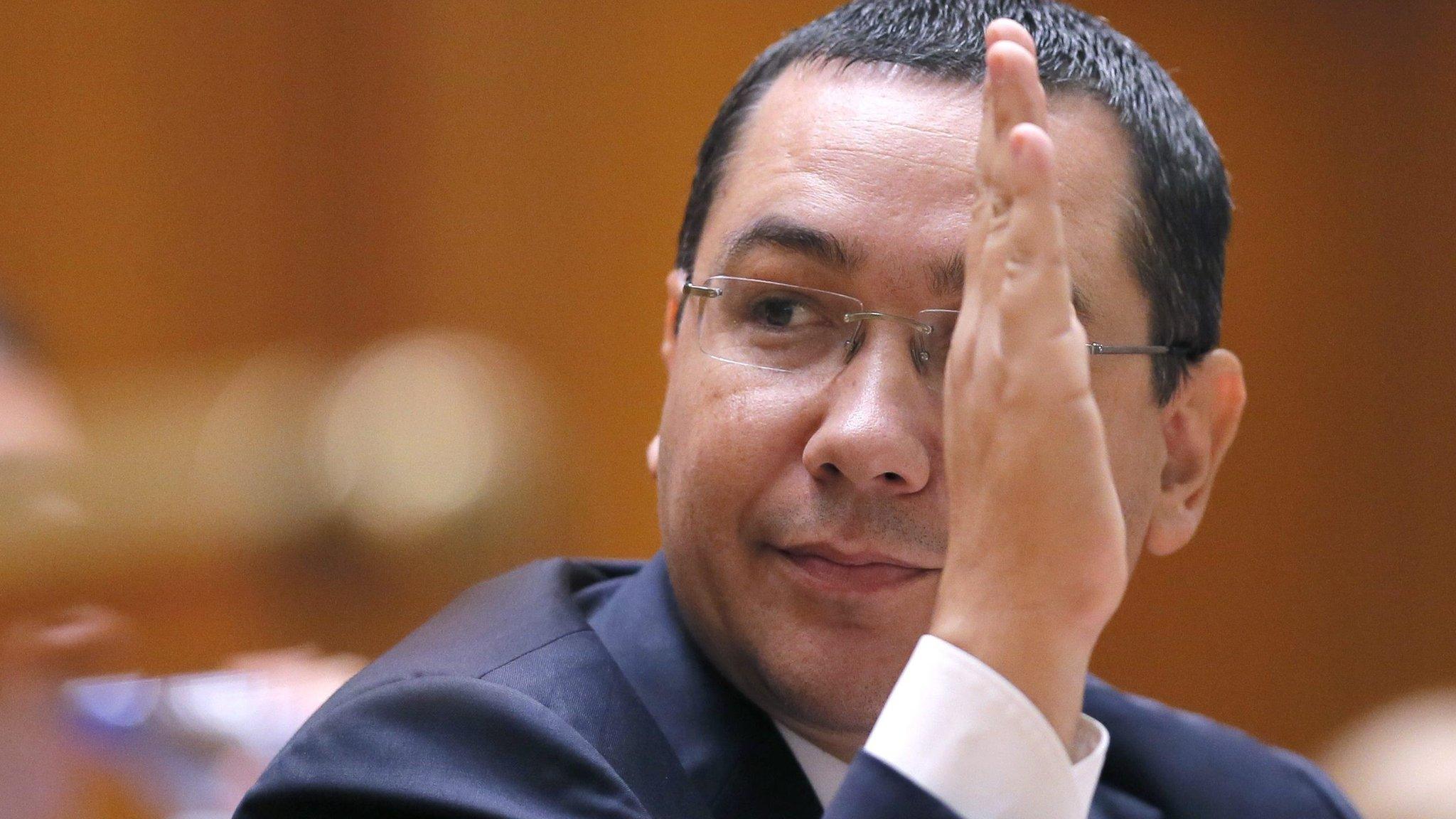Romania PM Ponta resigns over Bucharest nightclub fire
- Published
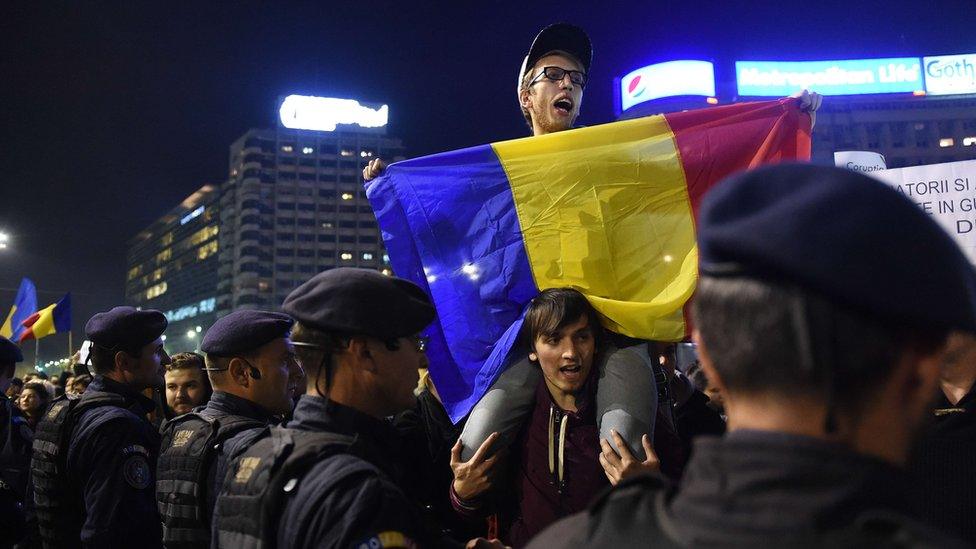
Protesters took to the streets of Bucharest and other cities demanding government resignations
Romanian Prime Minister Victor Ponta has resigned after some 20,000 people took to the streets to protest over a nightclub fire that killed 32 people.
Friday night's blaze in Bucharest started when a band performing at the club set off fireworks inside.
Demonstrators called for Mr Ponta to step down, complaining of government corruption and poor safety supervision.
"I'm handing in my mandate, I'm resigning, and implicitly my government too," Mr Ponta said in a statement.
"I hope the government's resignation will satisfy the people who came out in the streets," he added.
Ponta under fire
In September, Mr Ponta became the first sitting Romanian prime minister to go on trial charged with corruption. He faces allegations of fraud, tax evasion and money laundering.
He denies the charges and has accused prosecutors of being "totally unprofessional".
The protesters also demanded the resignation of the mayor of the Bucharest district where the nightclub fire occurred and the country's Interior Minister Gabriel Oprea. Both men also stood down on Wednesday.
President Klaus Iohannis, who has repeatedly called on Mr Ponta to step down since the corruption scandal unfolded in June, called for a "sea of change" in Romanian politics in the wake of the resignations.
He also voiced praise for Tuesday's protests, saying the club tragedy had "affected the nerve of the nation".
Why did Romanian PM Victor Ponta resign?

Analysis: Nick Thorpe, BBC Central Europe Correspondent
It took a fatal fire that killed mainly young people in a Bucharest rock venue to finally force Romania's youthful Prime Minister and his government to resign.
At 42, Victor Ponta has already survived no-confidence votes, corruption allegations, and the personal hostility of two Romanian presidents. But when at least 20,000 people took to the streets of Bucharest on Tuesday, blaming the country's political elite for the high death toll, and President Klaus Iohannis added his voice to the protesters' demands for political accountability, Mr Ponta finally announced his departure.
More street protests had been planned in the capital and provincial towns. As well as a tough Anti-Corruption Agency, Romania also has a tradition of successful popular protest, since the revolution that overthrew Communist dictator Nicolae Ceausescu in 1989.

At the scene: Petru Clej, central Bucharest
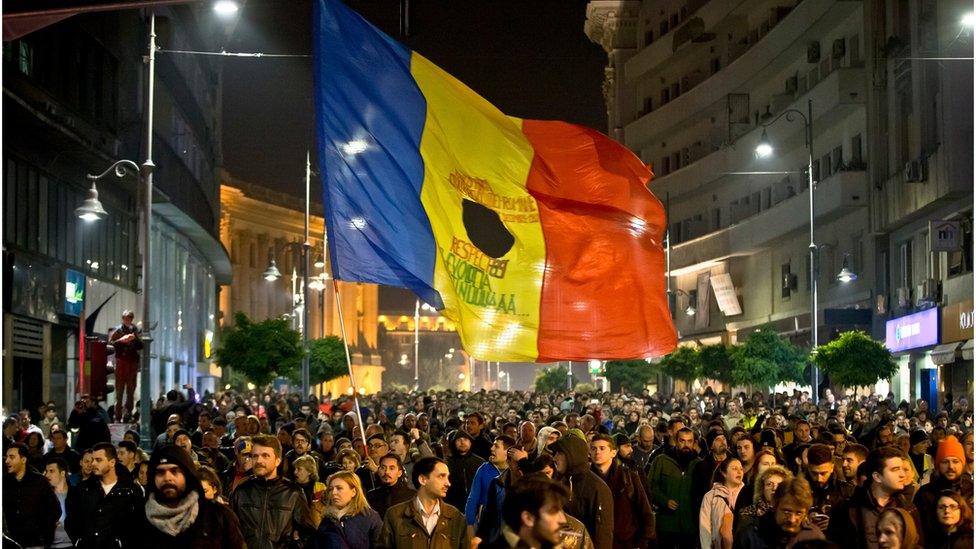
A main avenue in the capital was filled by protesters on Tuesday night
More than 100 people are still in hospital and some of them in a critical condition, after suffering burns and poisoning in the fire. Doctors fear the toll could rise.
Furious over the tragedy, Romanians took to the streets, chanting "shame on you" and "assassins". A young woman at the protest who lost two friends in the blaze was clearly angry.
"We the young are the future. That is what we were told, that is how we were educated. And when something very serious like that happens and young people die, we see it as an attack against us," she said.
"Things must change and change must come from those who govern us."

The blaze
The fire at Colectiv on Friday broke out as some 400 people gathered for a free rock concert by the band Goodbye to Gravity. Survivors said the fireworks set off inside the club ignited foam decor.
The club's single exit was overwhelmed in the panic that followed. More than 180 people were injured.
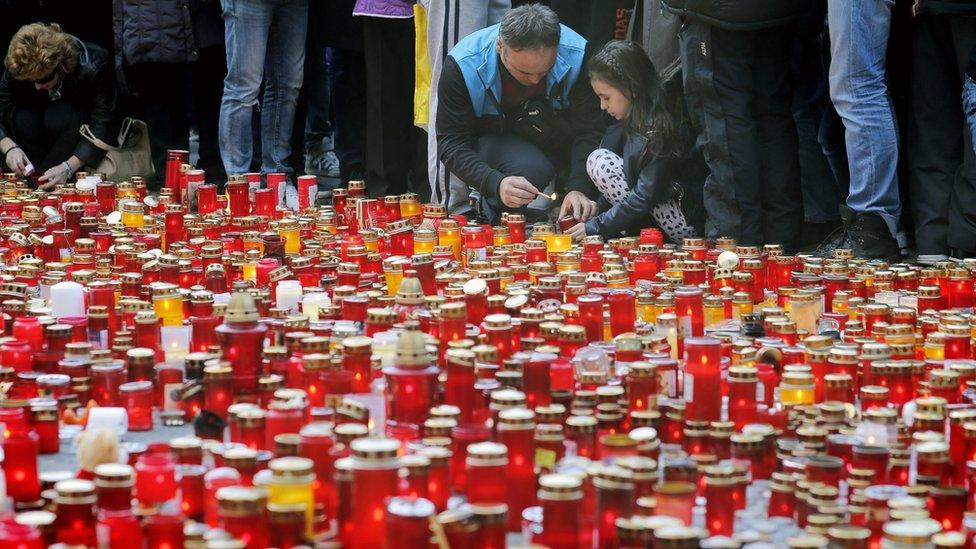
Romanians lit candles in Bucharest to remember the victims
The three owners of the club have been arrested amid allegations that the venue was overcrowded, lacked the required number of emergency exits, and may not have been authorised to hold such a concert.
Concerns that safety was compromised because of corruption, a long-standing issue in Romania, have fuelled public anger.

What happens next
President Iohannis will name an interim prime minister, before launching talks with political parties about forming a new government. Mr Ponta has said he will stay on until an interim successor is in place.
Romania's junior ruling coalition party, the UNPR, said in a statement on Wednesday it was willing to keep supporting the existing coalition government, in which it shares power with Mr Ponta's Social Democratic Party (PSD).
"We back our coalition further and are available to create a new government majority alongside the PSD," it said.
The UNPR's support ensures the coalition government retains a parliamentary majority.
Meanwhile, Romanian media sources said protesters were due back on the streets again on Wednesday evening.

Are you in Romania? What is your reaction to Prime Minister Ponta's resignation? Email haveyoursay@bbc.co.uk, external with your story.
Please include a contact number if you are willing to speak to a BBC journalist. You can contact us in the following ways:
Whatsapp: +44 7525 900971
Send pictures/video to yourpics@bbc.co.uk, external
Tweet: @BBC_HaveYourSay, external
Send an SMS or MMS to 61124 or +44 7624 800 100
- Published4 November 2015
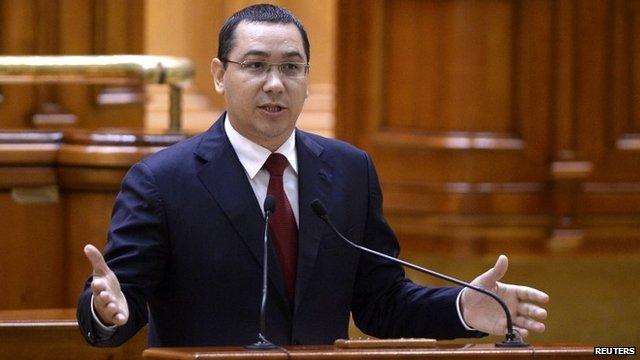
- Published2 November 2015
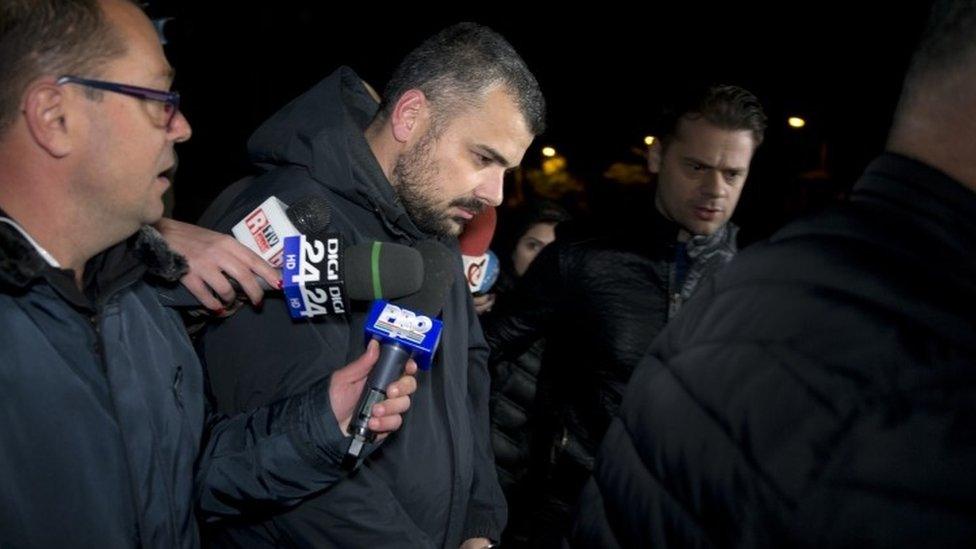
- Published29 September 2015
